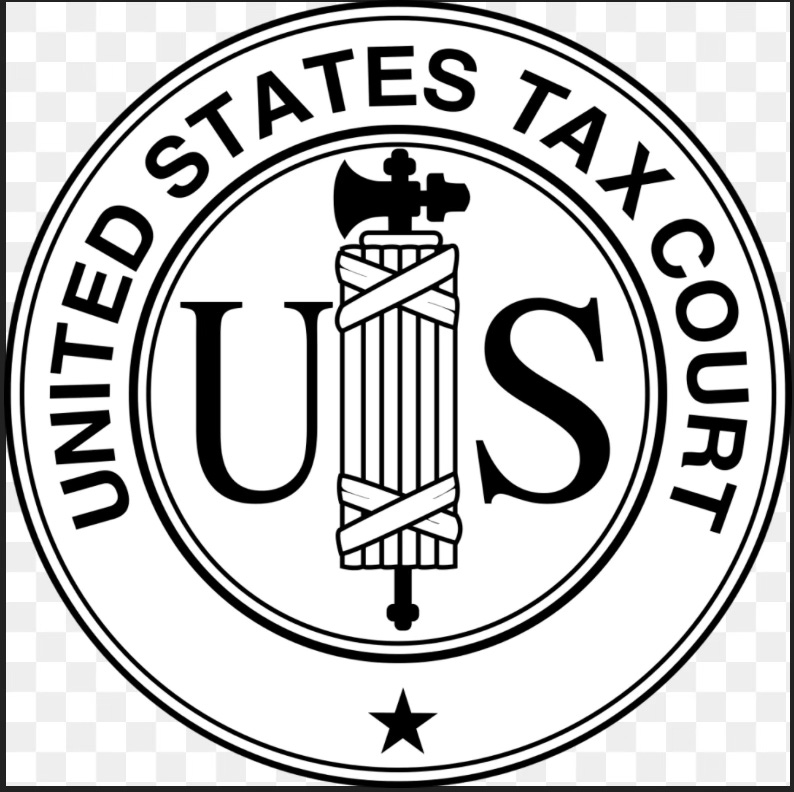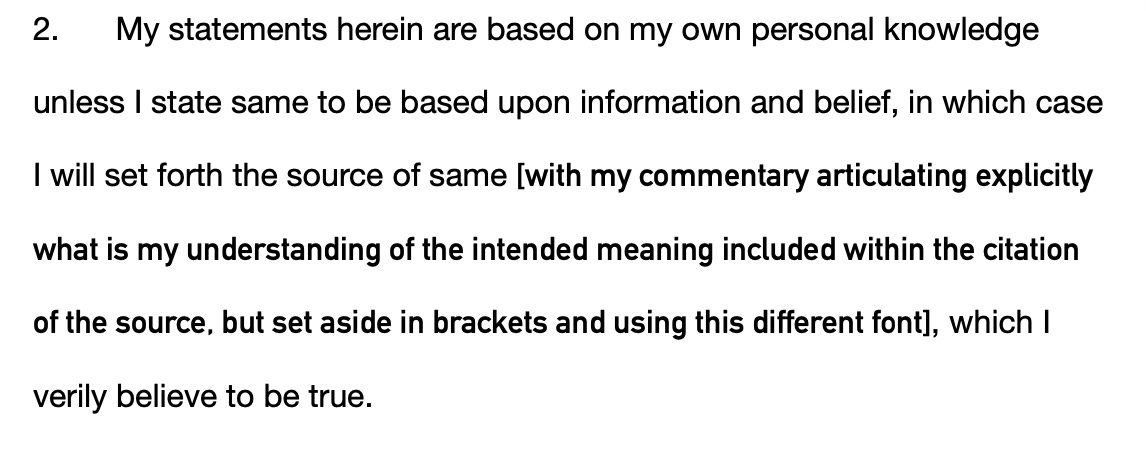excerpts from my unsworn declaration - part one
tales from tax court - episode one
the power to tax “income” pre-existed the sixteenth amendment:
See Moore v. United States, 602 U.S. ___ (2024)
The Framers [of the U.S. Constitution] responded to the revenue problems [under the Articles of Confederation] by granting Congress an expansive taxing power. … As this Court has said, Article I, §8’s grant of taxing power “is exhaustive,” meaning that it could “never” reasonably be “questioned from the” Founding that it included the power “to lay and collect income taxes.” Brushaber, 240 U. S., at 12–13.
See Taft v. Bowers, 278 U.S. 470 (1929)
Under former decisions here the settled doctrine is [“settled doctrine” means there is no longer any doubt that the following is true] that the Sixteenth Amendment confers no power upon Congress [no new power granted by the 16th amendment] to define and tax as income without apportionment something which theretofore could not have been properly regarded as income [what was defined and taxed as income is the same both before and after the 16th amendment].
See Stanton v. Baltic Mining Co., 240 U.S. 103 (1916)
… by the previous [Brushaber] ruling it was settled that the provisions of the Sixteenth Amendment conferred no new power of taxation [no new power granted by the 16th amendment] but simply prohibited the previous complete and plenary power of income taxation possessed by Congress from the beginning from being taken out of the category of indirect taxation to which it inherently belonged [after the 16th amendment income taxes cannot be removed from the indirect class …] and being placed in the category of direct taxation subject to apportionment [after the 16th amendment income taxes cannot be placed in the direct class …] by a consideration of the sources from which the income was derived [because of the source of the “income”], that is by testing the tax not by what it was — a tax on income, but by a mistaken theory deduced from the origin or source of the income taxed.
See Brushaber v. Union Pacific R. Co., 240 U.S. 1 (1916)
That the authority conferred upon Congress by § 8 of Article I “to lay and collect taxes, duties, imposts and excises” is exhaustive and embraces every conceivable power of taxation has never been questioned, or, if it has, has been so often authoritatively declared as to render it necessary only to state the doctrine. And it has also never been questioned from the foundation, without stopping presently to determine under which of the separate headings the power was properly to be classed, that there was authority given, as the part was included in the whole, to lay and collect income taxes [the power to lay and collect income taxes preceded the 16th amendment].
and
… the [appellant’s] bill alleged twenty-one constitutional objections specified in that number of paragraphs or subdivisions. As all the grounds assert a violation of the Constitution, it follows that in a wide sense they all charge a repugnancy of the statute to the Sixteenth Amendment under the more immediate sanction of which the statute was adopted [the appellant, Mr. Brushaber, claimed the income tax statue violated the Constitution and the 16th amendment].
and
The various propositions [the claims in the appellant’s bill] are so intermingled as to cause it to be difficult to classify them. We are of opinion, however, that the confusion is not inherent [the appellant’s confused claims are not caused by the Constitution or the 16th amendment], but rather arises from the conclusion that the Sixteenth Amendment provides for a hitherto unknown power of taxation [the appellant’s confusion is because he incorrectly concluded that the 16th amendment did grant Congress a new taxing power], that is, a power to levy an income tax which although direct should not be subject to the regulation of apportionment applicable to all other direct taxes [the appellant’s incorrect conclusion is that a new taxing power was granted to Congress by the 16th amendment to levy a new type of income tax that was direct but not required to be proportional to the population].
and
And the far- reaching effect of this erroneous assumption will be made clear by generalizing the many contentions advanced in argument to support it [the U.S. Supreme Court calls the appellant’s conclusion an “erroneous assumption,” which means that it is incorrect, and the court will demonstrate how the appellant is in error, first by summarizing the appellant’s claims in items (a), (b), (c), and (d) that follow the above quoted text, and second by showing the detrimental effects of the appellant’s “erroneous assumption”] …
and
… But it clearly results that the proposition and the contentions under it, if acceded to [“if acceded to” means that the U.S. Supreme Court is going to demonstrate using the hypothetical that the appellant’s erroneous assumption were true in order to show the detrimental effects], would cause one provision of the Constitution to destroy another [the appellant’s “erroneous assumption” that the 16th amendment gave Congress the power to levy a new type of tax that is direct but not apportioned would clearly result in an obvious contradiction]; …
and
… that is, they would result in bringing the provisions of the Amendment exempting a direct tax from apportionment into irreconcilable conflict with the general requirement that all direct taxes be apportioned [“irreconcilable conflict” because the requirement in the constitution that direct taxes be apportioned is not overturned by the 16th amendment].
and
Moreover, the [hypothetical] tax authorized by the Amendment, being direct, would not come under the rule of uniformity applicable under the Constitution to other than direct taxes, and thus it would come to pass that the result of the Amendment would be to authorize a particular direct tax not subject either to apportionment or to the rule of geographical uniformity, thus giving power to impose a different tax in one State or States than was levied in another State or States [if the appellant’s “erroneous assumption” were “acceded to” this hypothetical new type of tax that would be direct but not required to be apportioned would not have to be uniform either because it would not be in the indirect class and therefore not subject to that requirement].
and
This result instead of simplifying the situation and making clear the limitations on the taxing power, which obviously the Amendment must have been intended to accomplish [the U.S. Supreme Court says that the 16th amendment was OBVIOUSLY intended to simplify the income tax situation and clarify the limitations on the taxing power of Congress], would create radical and destructive changes in our constitutional system and multiply confusion [the appellant’s “erroneous assumption” that the 16th amendment gave Congress the power to levy a new type of unapportioned direct tax would result in RADICAL(!) and DESTRUCTIVE(!) changes to our constitutional system and multiply confusion(!!), so the appellant’s assumption is thereby proven to be false].
See Pollock v. Farmers' Loan & Trust Co., 157 U.S. 429 (1895)
The constitution … gave the power to tax, both directly and indirectly, to the national government, and, subject to the one prohibition of any tax upon exports and to the conditions of uniformity in respect to indirect, and of proportion in respect to direct, taxes, the power was given without any express reservation.
the supreme court repeatedly states that the power to tax “income” pre-existed the sixteenth amendment.
the sixteenth amendment did not give congress the power to tax “income” because it already had that power.
the supreme court repeatedly states that the purpose of the sixteenth amendment was to clarify that “income” could come from any source and that the source of the “income” would never again cause an inherently indirect tax to become a direct tax.
i hope at this point i’ve sufficiently beaten this dead horse. any myth you might have come across stating that the sixteenth amendment is what gave us the “income” tax is proven false, per the above. please stop repeating nonsense.
the fact that i had to put this very basic understanding into a court filing so that the judge and the attorneys for the irs could read it should tell you how this is going so far.
it gets better so i hope you’ll stick around.








